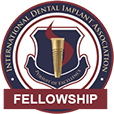The Benefits of a Bright Smile
January 16th, 2018

Having a nice, bright smile can affect the way you look, and in turn, improve how you feel about yourself. With the help of Dr. DeCasperis to provide you with a whitening treatment, you won’t have to be afraid to show your smile any longer.
It’s been shown that the first thing people typically notice is a person’s smile. Though many people don’t like to admit it, humans often judge others first on their looks.
Over time, your teeth may become stained from foods and beverages. Teeth-whitening techniques can be an effective solution to restore confidence in your smile and your life. Our team is here to help you regain your smile with brightened teeth that have been affected by wear.
Your smile can affect:
- Personal and work-related relationships
- Job interviews and meetings
- Success dealing with customers and potential clients
- Your confidence and general happiness
- Overall outlook on daily interactions
Regaining confidence in your smile can be helpful in all these areas of your life and more. If you think your smile has been holding you back, it may be beneficial to restore your white teeth with the help of Dr. Steven DeCasperis, DMD.
If you’re interested in enhancing your smile, feel free to reach out to our Lebanon, NJ office and we will be happy to go over the whitening options we provide.









